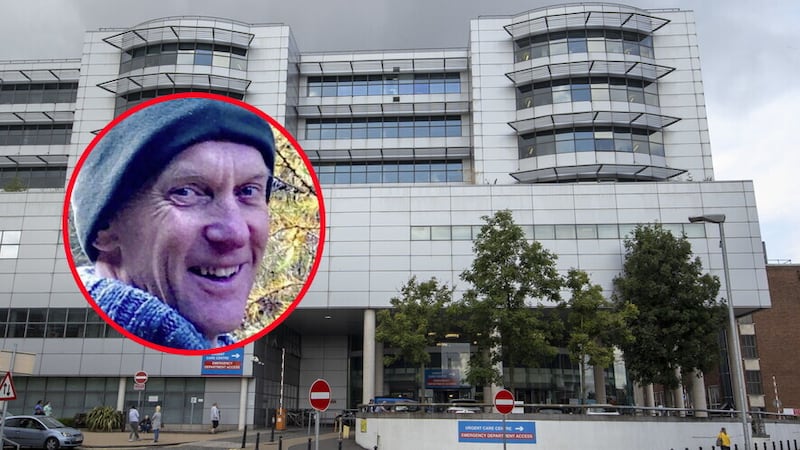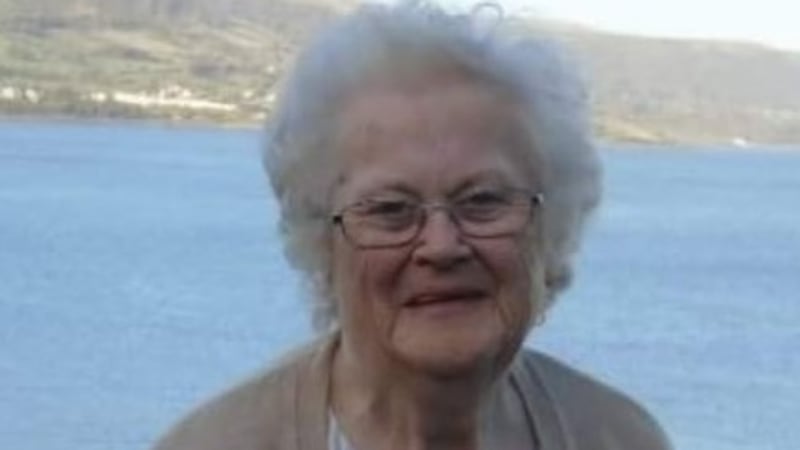The General Medical Council (GMC) has argued during a tribunal for the erasure from the medical register of the neurologist at the centre of Northern Ireland’s largest recall of patients.
It comes after Dr Michael Watt’s fitness to practise was found by a medical tribunal to be “currently impaired”.
On Thursday, the tribunal found his professional performance was unacceptable.
The panel is now set to consider potential sanctions.
Read More
- ‘We were failed' – former patients of Dr Michael Watt
- Court quashes voluntary removal of Michael Watt from medical register
Dr Watt has not practised since 2017, the tribunal previously heard.
In submissions to the tribunal on Friday, Charles Garside KC, acting for the GMC, argued that Dr Watt be erased from the medical register.
In terms of mitigating factors, Mr Garside pointed out that Dr Watt has no criminal convictions, nor regulatory infractions, or any action taken against him by the GMC.
“He’s had a long career with, until the end of it, an unblemished record,” he said.
However, Mr Garside said that at the latter end of his career his performance was not sufficiently good, and the pattern of his work became suboptimal.
“Aggravating features in this case include the fact that there has been no garnishment of fault, no remediation, no acceptance that any damage was caused to patients, there is no evidence of insight and the assessors found no insight when they were talking to Dr Watt about his practice,” he said.
Mr Garside added: “In my submission, so far as Dr Watt is concerned, it (erasure from the medical register) is the only means of protecting the public.
“My submission is that Dr Watt did present a risk to patient safety, but even if he didn’t, given the surrounding circumstances of this case and the massive disquiet that must have been caused to not only the patients recalled but to their families and friends, the necessity for erasure here is not only to protect patients but to maintain public confidence.”
Last week, a legal representative for Dr Watt withdrew from the hearing, expressing concern around his client’s mental health.
The hearings have proceeded without him.
The panel has retired to consider its decision around potential sanctions.
The Medical Practitioners Tribunal Service (MPTS) is carrying out the fitness to practise hearing.
In 2018, more than 4,000 of the neurologist’s patients attended recall appointments amid concerns over his clinical practice.
A previous MPTS tribunal granted Dr Watt voluntary removal from the medical register.
However, the High Court in Belfast quashed that ruling due to concerns it was “not sufficient to protect the public”.
The three-person tribunal began its new hearing last month, when it was told a performance report into Dr Watt in 2018 found that he repeatedly failed to make correct diagnoses.
Dr Watt had been a consultant neurologist at the Royal Victoria Hospital in Belfast but ceased clinical practice in 2017.
He was interviewed three times for the GMC assessment report the following year.
The tribunal previously heard that the report stated Dr Watt’s performance was found to be deficient, he was not fit to practise and should cease practice.
The report said there was a persistent failure to take adequate histories from patients and carry out clinical examinations.
It also stated there was persistent and repeated failure to make correct diagnoses, resulting in patients receiving inappropriate management which included drugs with serious and toxic side effects.
It also said there was use of idiosyncratic diagnostic criteria, leading to patients receiving unnecessary invasive treatment.








